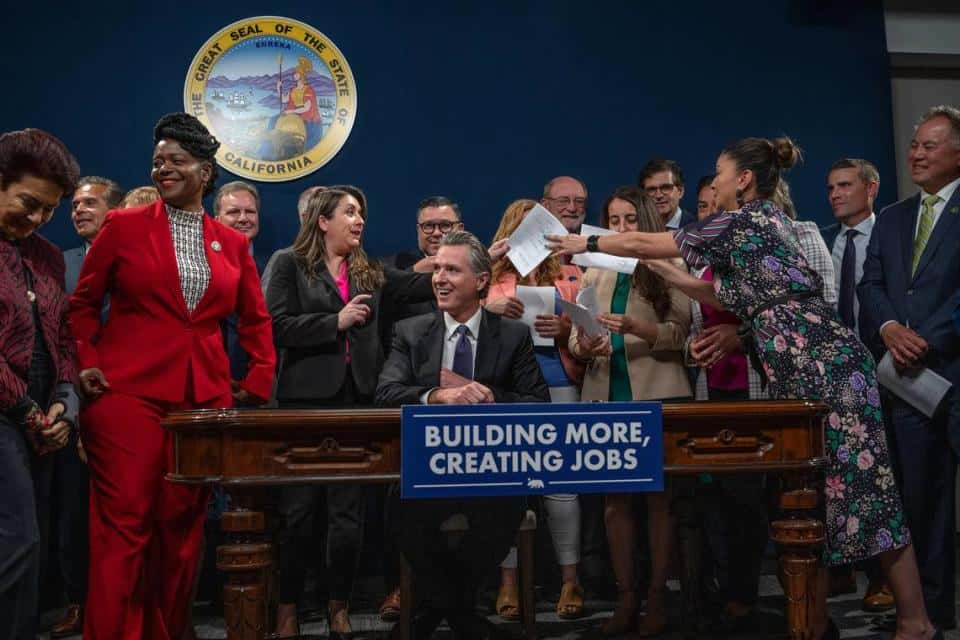This comes after a recent disagreement over last-minute additions to the budget negotiations.

The five bills aim to facilitate the construction of large-scale projects in areas such as water, transportation, clean energy, and broadband internet
Although the infrastructure measures were not directly tied to the budget, Governor Gavin Newsom successfully integrated them into the spending plan discussions, which initially upset some Democrats. One contentious issue was the inclusion of the controversial 45-mile Delta Conveyance water tunnel, which Delta-area lawmakers opposed. However, Governor Gavin Newsom eventually removed the project, leading to the finalization of the infrastructure measures last week.
During the bill-signing event, Governor Gavin Newsom and lawmakers set aside their differences and praised each other and the budget agreement. The budget, amounting to $311 billion, also addresses California‘s estimated $31.5 billion spending gap without cutting essential programs like education, healthcare, and safety nets.
When questioned about his negotiation tactics, Governor Gavin Newsom dismissed the notion that he used the Delta tunnel as a bargaining chip and referred to it as “unsourced gossip.” He reiterated his commitment to the project and emphasized its significance as one of the largest infrastructure endeavors in the country. This move marked the second time Governor Gavin Newsom employed a similar strategy by introducing climate-related bills at the last minute to gain leverage over lawmakers.
The article also touched upon Senate Bill 423, authored by Senator Scott Wiener, which seeks to extend the streamlined permitting and approval processes for multifamily housing projects initiated by Senate Bill 35
Environmental groups expressed concerns that SB 423 does not provide sufficient protection for coastal zones, urging for stronger safeguards against rising sea levels. Wiener, however, has so far agreed to plan for three feet of sea level rise, as indicated by the National Oceanic and Atmospheric Administration, while the California Coastal Commission requested a language that accounts for five feet of rise by 2100.
Despite opposition, SB 423 advanced in the Assembly Committee on Natural Resources. Wiener made concessions to address wildfire risk, propose exemptions for developments near wetlands, and continue working on a compromise for the coastal zone issue. He cited the success of SB 35 in expediting the construction of 20,000 homes since 2018, despite resistance from influential organizations like the State Building and Construction Trades Council of California. The California Conference of Carpenters supported the bill, and numerous union members attended the hearing in support.
Overall, Governor Gavin Newsom and lawmakers came together to celebrate the signing of infrastructure bills, putting aside past disagreements over the budget. The bills aim to facilitate major water, transportation, clean energy, and broadband internet projects. Additionally, Senate Bill 423, which extends streamlined housing construction processes, faced debate regarding coastal zone protections. Despite opposition, the bill progressed through the committee, with revisions made to address concerns and potential compromises being discussed.




